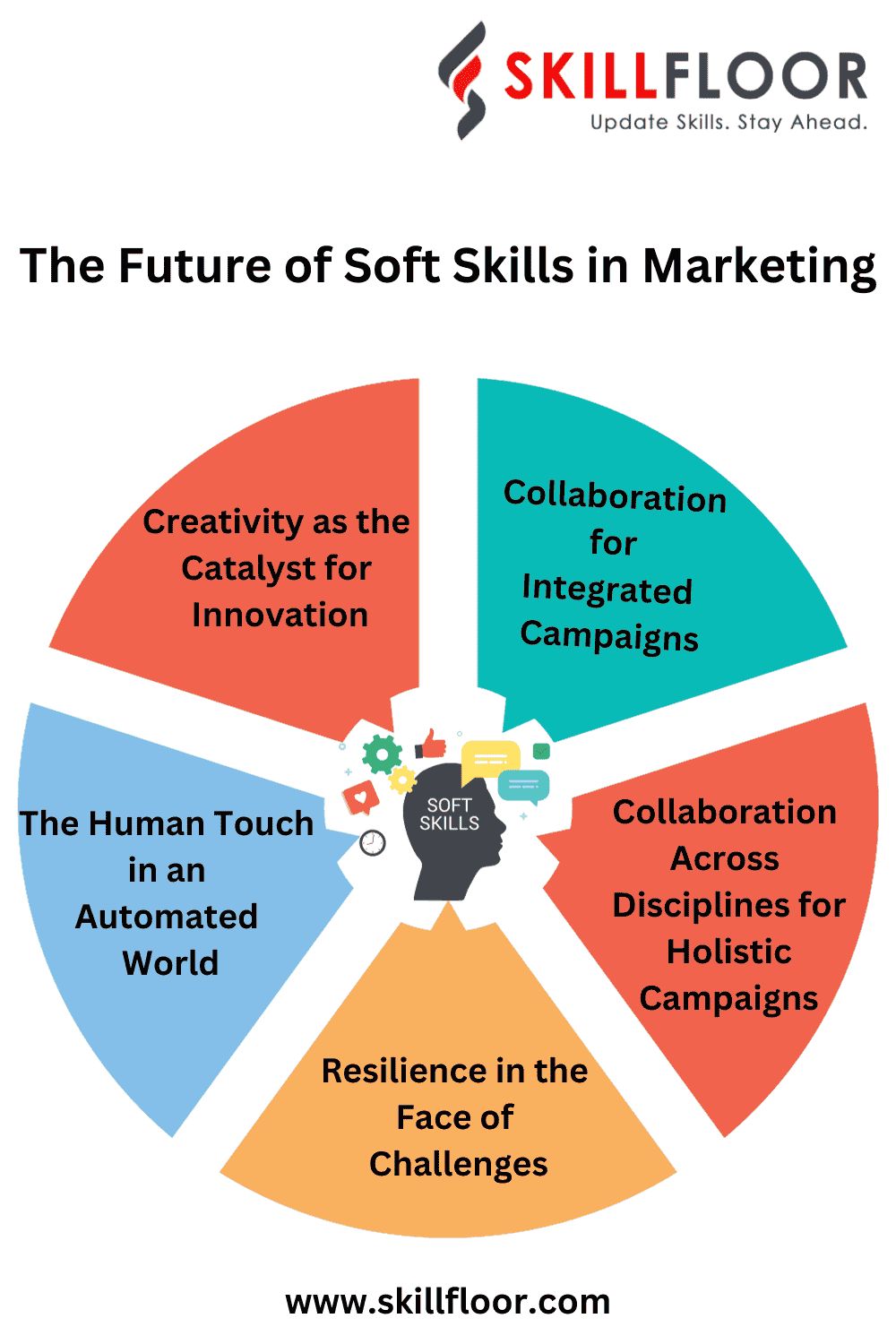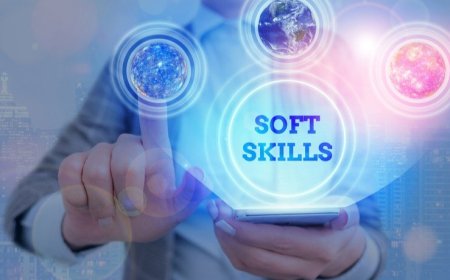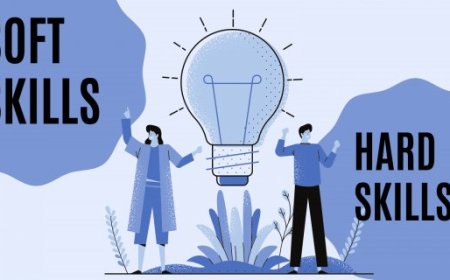The Impact of Soft Skills on Digital Marketing Strategies
Explore the crucial role of soft skills in shaping effective digital marketing strategies. Understand how communication, empathy, adaptability, collaboration, creativity, and time management influence success.

The importance of soft skills can occasionally be overshadowed by the focus on algorithms and statistics in the quick-paced field of digital marketing. These sometimes overlooked traits like empathy, communication, and flexibility are crucial for directing the development of effective digital marketing campaigns. Marketers may fully realize the potential of their campaigns and create a healthy interaction between the digital and human components of their business by discovering the right balance between technological know-how and interpersonal finesse.
The Digital Marketing Scenery
Technical competence is essential in the changing field of digital marketing, which is characterized by ongoing technological breakthroughs and changing consumer behavior. Success or failure, though, depends on the human element. Beyond algorithms, it's critical to comprehend and establish a genuine connection with the audience. What sets successful digital marketers apart from others is their ability to traverse this dynamic ecosystem with a combination of technology know-how and human understanding.
The Overlooked Soft Skills
Softer qualities are frequently overlooked as marketers concentrate on improving their algorithmic and data analytics abilities. Technical proficiency can often eclipse soft qualities like empathy, adaptability, and good communication. This disparity can make it difficult for marketers to establish a genuine connection with their audience since recognizing and meeting customer demands in the constant shift of digital marketing requires the human touch that comes with soft skills.
Why Do Soft Skills Matter in Digital Marketing?
Why should digital marketers pay attention to soft skills? What impact do these intangible qualities have on the effectiveness of digital marketing strategies?
The Impact of Soft Skills on Digital Marketing Strategies
1. Empathy in Understanding Consumer Behavior
One of the key soft skills that significantly influences digital marketing success is empathy. Understanding the needs, desires, and pain points of the target audience is essential for creating compelling and resonant digital campaigns. Empathetic marketers can anticipate consumer behavior, leading to more targeted and effective strategies.
2. Communication as the Bridge to Engagement
Effective communication is the linchpin of successful digital marketing. From crafting engaging content to interacting with customers on social media, the ability to communicate clearly and persuasively is paramount. Soft skills such as active listening and clear articulation contribute to building trust and fostering customer engagement.
3. Adaptability in the Face of Constant Change
The digital realm is characterized by constant evolution. Soft skills like adaptability and flexibility empower marketers to navigate through the ever-changing landscape seamlessly. Marketers who can quickly pivot in response to emerging trends and shifts in consumer behavior are better positioned to stay ahead of the competition.
4. Collaboration for Integrated Campaigns
Digital marketing is rarely a solo endeavor. Collaboration is key, not only within the marketing team but also with other departments like sales, IT, and customer service. Soft skills such as teamwork, conflict resolution, and the ability to build positive working relationships are essential for the seamless execution of integrated marketing campaigns.
5. Creativity as the Catalyst for Innovation
In a world saturated with digital content, creativity stands out as a crucial soft skill. Innovative and imaginative campaigns capture the audience's attention and leave a lasting impression. Marketers who can think outside the box and inject creativity into their strategies are more likely to create memorable and shareable content.
6. Time Management for Efficient Campaign Execution
Digital marketing is fast-paced, and time management is a soft skill that often determines success. Marketers who can prioritize tasks, set realistic timelines, and manage deadlines effectively contribute to the timely execution of campaigns. This, in turn, enhances the overall efficiency and impact of digital marketing initiatives.
The Future of Soft Skills in Marketing

Soft skills have long been considered a valuable asset in various professional domains, and marketing is no exception. As we look towards the future, the role of soft skills in marketing is expected to become even more critical. These interpersonal, communication, and adaptability skills are likely to play a pivotal role in shaping the success of marketing strategies in the evolving landscape. Let's explore why the future of marketing is intertwined with the cultivation and application of soft skills.
1. The Human Touch in an Automated World
With the increasing integration of automation and artificial intelligence in marketing processes, the human touch becomes a distinguishing factor. Soft skills, particularly empathy and understanding, will be crucial in ensuring that marketing strategies resonate with the diverse and dynamic human audience. While automation can streamline tasks, soft skills are irreplaceable in creating genuine connections with customers.
2.Handling Cultural Sensitivity in International Marketplaces
As markets become more globalized, marketers must traverse diverse cultural landscapes. Soft skills, such as cultural intelligence and effective communication, will be essential in creating campaigns that resonate across borders. Understanding and respecting cultural nuances will not only prevent inadvertent missteps but also enhance the relatability of marketing messages on a global scale.
3. Adapting to Shifting Consumer Expectations
Consumer expectations are in a constant state of flux, driven by technological advancements and societal changes. Soft skills like adaptability and flexibility will be instrumental in helping marketers stay attuned to these shifts. Marketers who can quickly adapt their strategies to align with changing consumer preferences will be better positioned to stay ahead of the curve.
4. Building Trust in an Era of Information Overload
In an era where information is abundant but trust is scarce, building and maintaining trust with consumers is paramount. Soft skills like transparency, authenticity, and effective communication play a pivotal role in establishing and nurturing trust. Marketers who prioritize building authentic relationships with their audience are more likely to succeed in an environment where skepticism is prevalent.
5. Collaboration Across Disciplines for Holistic Campaigns
The future of marketing will demand increased collaboration across various disciplines within an organization. Soft skills such as teamwork, interpersonal communication, and the ability to build positive working relationships will be essential for marketers to collaborate effectively with colleagues from diverse backgrounds. Holistic campaigns that integrate insights from different departments are more likely to resonate with the target audience.
6. Resilience in the Face of Challenges
Marketing, like any other field, is not without its challenges. The ability to navigate setbacks, learn from failures, and bounce back is a soft skill that will become increasingly valuable. Resilient marketers can adapt to unforeseen circumstances, learn from setbacks, and continue to drive strategies forward even in the face of adversity.
Soft skills are the unsung heroes of digital marketing success; they bring human understanding to the table to balance technical skills. These intangible attributes, which range from empathy and communication to flexibility and inventiveness, elevate advertisements and promote sincere connections with target audiences. Soft skills are vital as automation increases because they guarantee a human touch in the age of technology. Looking in advance, maintaining, and utilizing these critical interpersonal skills will be crucial for marketing professionals to change environments and establish trust in a time of perpetual change.






























































